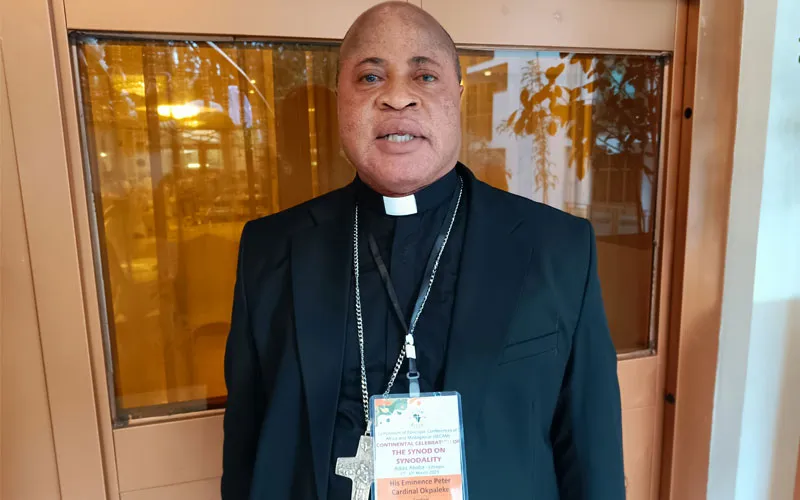“The new Electoral Act gives specifications on the process to elect a new president. We are so disappointed with INEC for not having followed that process,” Cardinal Okpaleke told ACI Africa on the sidelines of the Plenary Assembly of the Symposium of Episcopal Conferences of Africa and Madagascar (SECAM) taking place in Ethiopia’s capital city, Addis Ababa.
He urged Nigeria's opposition parties who “failed during the process” to “take it easy and follow the rule of law in order to get their country on the right path where mistakes have been made.”
“There are opportunities to correct, especially through the courts or even the INEC can reflect and then highlight areas they have made mistakes,” the Local Ordinary of Nigeria’s Ekwulobia Diocese said.
He added in reference to INEC officials, “It is possible they can no longer recount or maybe name another person as a president-elect, but if they are honest and provide the materials available, the facts will speak for themselves.”
On Thursday, March 2, LP Presidential candidate, Peter Obi, said he will challenge the result of the election in court, Reuters reported.
“Let me assure all Nigerians that we will explore all legal and peaceful options to reclaim our mandate,” Mr. Obi told journalists at a press conference.
In separate interview with ACI Africa, Bishop Emmanuel Adetoyese Badejo of Nigeria’s Oyo Diocese said, “All along the process of the elections, the church in Nigeria has been of the opinion that we needed to do all we could to pray to vote according to our conscience, to obey all the laws. And that whoever would emerge at the end of the day as a Church and as a people who believe in God would support him as God can make anybody work for his purpose and for the development of the country.”
With the announcement of Mr. Tinubu as president-elect, Bishop Badejo said, “The Church believes that there are opportunities for dissenting competitors to go to court.”
He called on Nigerians to remain “calm and wait for the outcome of the courts if there is any appeal against his (Mr. Tinubu) election.”
Whatever happens, the Nigerian Catholic Bishop said, “every Nigerian president would need our full and total cooperation as good citizens and as good Catholics.”








